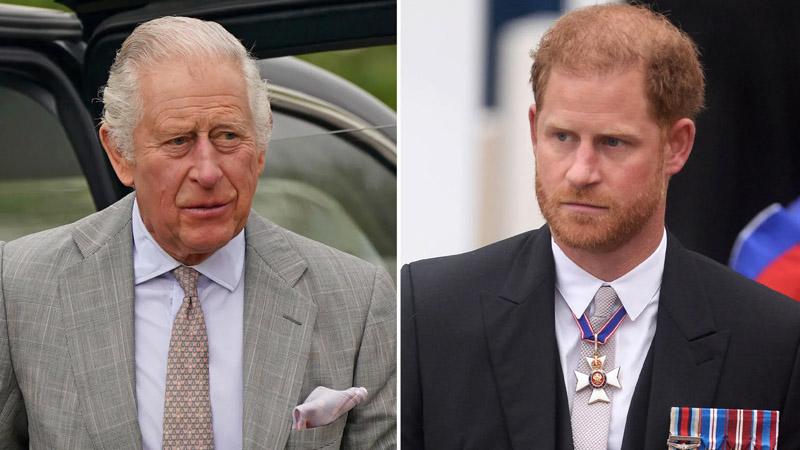
Hostile Phone Call That Still Haunts King Charles and Prince Harry’s Relationship
A recent commentary sheds light on the strained relationship between King Charles III and his youngest son, Prince Harry. A commentator suggests that a “hostile” phone conversation during Queen Elizabeth II’s final days may have caused the monarch to associate a certain level of stress with seeing Harry.
Prince Harry’s latest visit to London did not include a meeting with King Charles. Commentator Jack Royston discussed this on the Royal Report podcast, emphasizing the stress that persists between the father and son. Royston pointed to a phone call recounted in Harry’s memoir, Spare, as a significant source of tension. During this call, King Charles spoke negatively about Meghan Markle, which deeply upset Harry.
“It’s a shame they didn’t get together,” Royston remarked. He believes that unresolved issues and “floating anxiety” prevent a stress-free meeting between Harry and King Charles. Royston revisited a passage from Spare, where Harry described the contentious conversation.
“I would say, in the King’s corner, is Harry can be hot-tempered sometimes,” Royston explained (via Newsweek). “I mean, all the Windsors can, Charles is no exception…he’s a man who gets frustrated sometimes.”
The commentator recalled the moment Harry “blew up” at his father because he felt Charles had been dismissive of Meghan as the queen’s health declined. This incident may have left King Charles with a lasting sense of anxiety about interactions with Harry.
Royston continued, “I just wonder, really, whether Charles might have taken away from that experience a level of background stress about seeing Harry. A kind of generalized floating anxiety that something might go wrong. And it will be another negative encounter with lots of hostile emotions and him getting the blame.”
In Spare, Harry recounted his father’s words during the phone call: “Then came another call from Pa. He said I was welcome at Balmoral, but he didn’t want…her. He started to lay out his reason, which was nonsensical, and disrespectful, and I wasn’t having it.”
Harry’s response was direct: “Don’t ever speak about my wife that way,” he told King Charles. The king stammered, apologetic, explaining he simply didn’t want a lot of people around, noting that Kate Middleton wasn’t coming either.
Royston highlighted the significance of these quotes: “Those are actual quotes that Harry’s put in there of his end of the conversation, which basically was, I’d say, fairly hostile.” He noted that King Charles never publicly responded to Harry’s claims in the memoir.
Royston acknowledged that King Charles may have been dismissive but stressed the context. “Perhaps he may even think in hindsight that he could have worded it better. But in fairness, his mother was dying, and he must have been very, very shaken up by that.”
Royston emphasized the administrative burden of grief, which can interfere with emotional responses. “Harry will not be the only call that would have had to have been made. So he [King Charles] probably, at this time, just wanted to be with the queen, his mother, in her final moments.”
Both Harry and King Charles learned of the queen’s death while en route to Scotland, a poignant moment described in Spare. The commentator’s insights suggest that the pain of that period still lingers, contributing to the ongoing difficulties between father and son.
